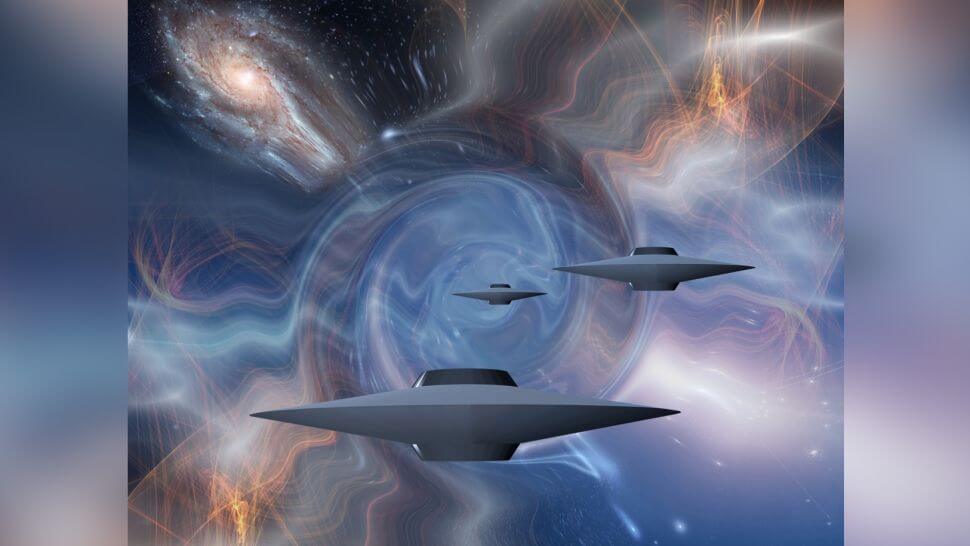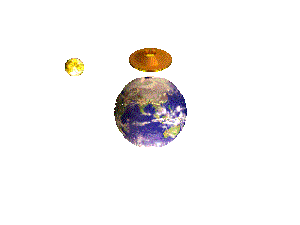Are there intelligent extraterrestrial civilizations capable of building technologies that can travel between the stars? An international research project is poised to find out.
The Galileo Project, helmed by a multi-institutional team of scientists led by Avi Loeb, a professor of science in the Department of Astronomy at Harvard University, will seek and investigate evidence that could represent defunct or still-active “extraterrestrial technological civilizations,” or ETCs, project representatives said in a statement released on Monday (July 26).
The project will analyze data from astronomical surveys and telescope observations, and design new algorithms using artificial intelligence (AI), in order to identify potential interstellar travelers, alien-built satellites and unidentified aerial phenomena (UAP), according to the statement.
“Science should not reject potential extraterrestrial explanations because of social stigma or cultural preferences that are not conducive to the scientific method of unbiased, empirical inquiry,” Loeb said in the statement. “We now must ‘dare to look through new telescopes,’ both literally and figuratively.”
Loeb, who is also director of the Institute for Theory and Computation at the Harvard-Smithsonian Center for Astrophysics, has previously suggested that the oddball cosmic object ‘Oumuamua — which passed by Earth in 2017 and was widely identified as a comet or asteroid — was an example of alien tech. ‘Oumuamua was visible only briefly before it continued on its journey to distant stars, and its flattened, cigarlike shape and erratic motion stymied many astrophysicists; Loeb was one of several scientists who proposed that the object could be a type of spacefaring equipment made by extraterrestrials, Live Science previously reported.
“We can only speculate whether ‘Oumuamua may be explained by never-seen-before natural explanations, or by stretching our imagination to ‘Oumuamua perhaps being an extraterrestrial technological object, similar to a very thin light sail or communications dish, which would fit the astronomical data rather well,” Loeb said.
‘Oumuamua was our solar system‘s first interstellar visitor (that we know of, at least), but that doesn’t mean it’ll be the last, and one of the Galileo Project’s research branches will focus on developing strategies for finding and tracking such objects, from space and from ground-based telescopes. Other project research areas will include searching for small ETC satellites that may be observing Earth, and analysis of UAP sightings.
UAPs — also known as unidentified flying objects, or UFOs — are of particular interest now, following the recent release of an unclassified report by the Pentagon describing UAP sightings by members of the military, Loeb said. Of the 144 UAP sightings between 2004 and 2021 that were documented in the report, just one was identified with “high confidence” — as a deflating balloon. The rest remain unexplained, Live Science reported.
“Rigorously validated” evidence
The Galileo Project, not to be confused with Rice University’s Galileo Project (an online resource for information on Galileo Galilei‘s life and work) likewise takes its name from the pioneering Italian astronomer, who lived from 1564 to 1642. Galileo used telescopes of his own design to observe celestial objects, leading to astonishing discoveries such as lunar craters, Saturn’s rings and the four moons of Jupiter, according to a biography by Live Science sister site Space.com.
Galileo’s observations and research also confirmed the then-controversial hypothesis of 16th-century astronomer Nicolaus Copernicus: that Earth — and all the solar system’s planets — orbited the sun, rather than everything rotating around Earth. Should the Galileo Project discover “rigorously validated scientific evidence of extraterrestrial technology,” the impacts would reshape scientists’ perception of the cosmos, much as Galileo’s discoveries did centuries ago, project representatives wrote in the statement.
Whether or not the Galileo Project will definitively settle the question about intelligent extraterrestrials’ existence (and their purported technological prowess) remains to be seen. But actively searching for such physical evidence greatly improves the chances of finding the first examples of alien tech, according to the statement.
As the project’s namesake Galileo wrote in “Dialogue Concerning the Two Chief World Systems” in 1632: “All truths are easy to understand once they are discovered — the point is to discover them.”
Please remember we all have different opinions, Think Before You Speak or Write Something that is cruel to Others. After all, We are only Humans. Wishing you clear skies and wide eyes. To share your experiences or just leave a comment there is a area below. Read or listen.
We are the change the world has been waiting for!
Have you witnessed an unidentified flying object?
You are not alone. Whether you think UFOs are black projects, extraterrestrial craft, something else altogether, or just don’t know, again, you are not alone!
Unconditional love. The road we all get to walk. Unconditional love is like the sun.
WE ARE THE DISCLOSURE !~ WE HAVE NEVER BEEN ALONE
Love and Regards,
Thank You,
Nancy Thames
Source: Live Science



